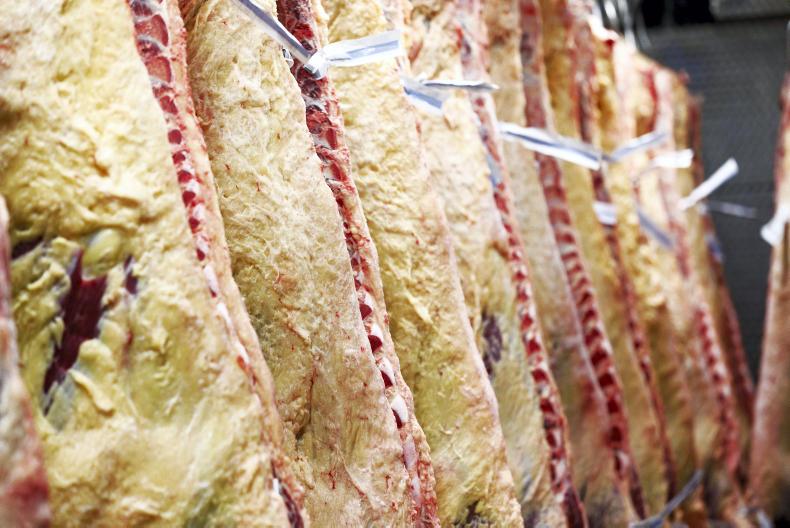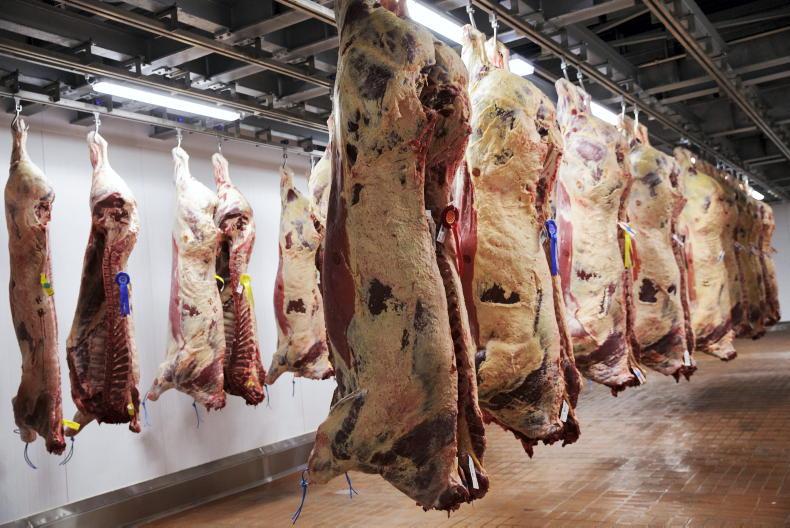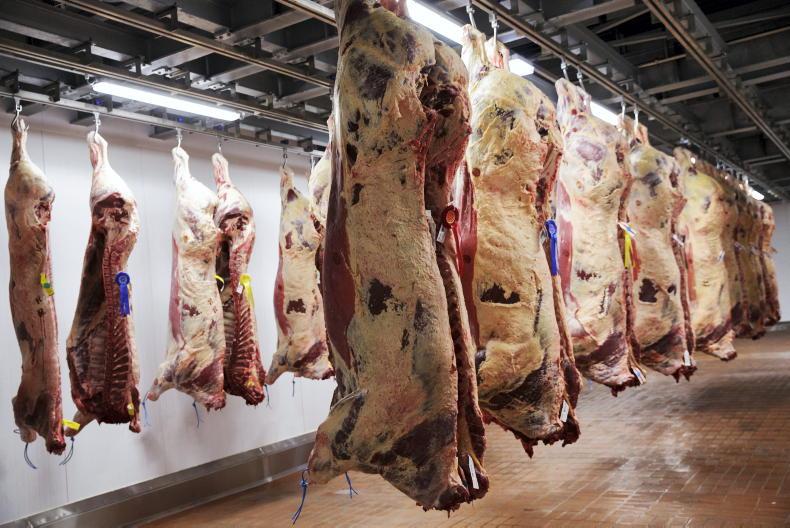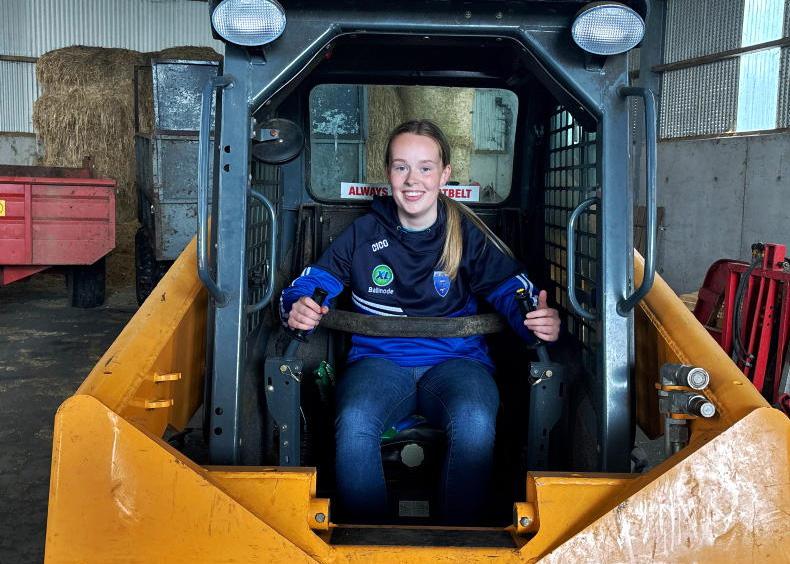The beef trade can be best described as sluggish. There is little appetite from factories to increase throughput, despite a surplus of stock in the market. This is reflected in last week’s kill of 37,689 head which is nine head less than the previous week.
Farmers are reporting facing lead-in times from booking to slaughter averaging anywhere from 10 days to three weeks, with longer reported in cases for cattle falling outside of the desired factory specification.
The escalation in numbers coming on stream has been driven by a backlog in throughput compounded by a rapid deterioration in ground conditions.
There also appears to be no desire to replicate the kills of upwards of 40,000 head handled for a sustained period when peak throughput came on stream in November and December 2018.
Last week’s kill is running 1,108 head lower than the corresponding week in 2018.
As touched on above, the other obvious aspect of the trade is that many factories are very much prioritising throughput of steers and heifers less than 30 months of age.
Base quotes for steers and heifers are running on average 30c/kg behind the corresponding period in 2018.
However, prices paid, as reported by the Department of Agriculture, show the gap with 2018 prices at 20c to 21c/kg.
This is because of tight purchasing behaviour, the increase in the Quality Payment Scheme bonus from 12c/kg to 20c/kg and the introduction of two new bonus payments.
Base prices are unchanged, with steers moving on average at a base of €3.45/kg and heifers from €3.50/kg to €3.55/kg. The only real deviation from this is a base of €3.50/kg for steers and €3.60/kg for heifers paid in Liffey Meats as part of the reported deal brokered to bring protests to an end.
The gap in young bull prices to the corresponding period in 2018 is much wider at about 35c/kg. This is a difference of €133 on a 380kg carcase and €150 on a 430kg carcase. Young bull throughput increased last week by 162 head to reach 2,520, but still remains 465 head behind the corresponding week in 2018.
R grading young bulls are trading from €3.40/kg to €3.45/kg at present, while U grading bulls are moving in general at €3.50/kg, with some specialist finishers securing 5c/kg higher.
Carcase weight limits are generally kicking in at 420kg to 430kg, with select plants showing more leniency to specialist suppliers.
Meanwhile, O grading bulls range in price from €3.15/kg to €3.25/kg on average. Bulls less than 16 months and trading on the grid are being offered a base of €3.40/kg to €3.45/kg, with a lower carcase weight limit in some plants of 400kg. It should be noted that bulls trading on the grid and meeting in-spec criteria are not eligible for new bonus payments.
Cow prices seem to have steadied this week, after heavy cuts in the last 10 days. P+3 grading cows are trading from €2.60/kg to €2.65/kg on average, while O grades average €2.80/kg to €2.85/kg. R grading cows are averaging around the €3.00/kg mark, with U grades 15c/kg to 20c/kg higher.
Northern throughput remains at a nine-year high, with last week’s kill increasing 520 head to reach 10,623. Base U-3 steer and heifer quotes range from £3.12/kg to £3.20/kg. With sterling strengthening to 86.5p to the euro, this equates to €3.61/kg to €3.70/kg or €3.80/kg to €3.90/kg VAT inclusive at 5.4%.
Pressure remains on the British trade, with average prices easing by up to 1p/kg. The AHDB reports R4L steers averaging £3.36/kg (€4.09/kg), with heifers reported 3p/kg lower.
Read more
NI trends: cattle kill hits a 10-year high
The beef trade can be best described as sluggish. There is little appetite from factories to increase throughput, despite a surplus of stock in the market. This is reflected in last week’s kill of 37,689 head which is nine head less than the previous week.
Farmers are reporting facing lead-in times from booking to slaughter averaging anywhere from 10 days to three weeks, with longer reported in cases for cattle falling outside of the desired factory specification.
The escalation in numbers coming on stream has been driven by a backlog in throughput compounded by a rapid deterioration in ground conditions.
There also appears to be no desire to replicate the kills of upwards of 40,000 head handled for a sustained period when peak throughput came on stream in November and December 2018.
Last week’s kill is running 1,108 head lower than the corresponding week in 2018.
As touched on above, the other obvious aspect of the trade is that many factories are very much prioritising throughput of steers and heifers less than 30 months of age.
Base quotes for steers and heifers are running on average 30c/kg behind the corresponding period in 2018.
However, prices paid, as reported by the Department of Agriculture, show the gap with 2018 prices at 20c to 21c/kg.
This is because of tight purchasing behaviour, the increase in the Quality Payment Scheme bonus from 12c/kg to 20c/kg and the introduction of two new bonus payments.
Base prices are unchanged, with steers moving on average at a base of €3.45/kg and heifers from €3.50/kg to €3.55/kg. The only real deviation from this is a base of €3.50/kg for steers and €3.60/kg for heifers paid in Liffey Meats as part of the reported deal brokered to bring protests to an end.
The gap in young bull prices to the corresponding period in 2018 is much wider at about 35c/kg. This is a difference of €133 on a 380kg carcase and €150 on a 430kg carcase. Young bull throughput increased last week by 162 head to reach 2,520, but still remains 465 head behind the corresponding week in 2018.
R grading young bulls are trading from €3.40/kg to €3.45/kg at present, while U grading bulls are moving in general at €3.50/kg, with some specialist finishers securing 5c/kg higher.
Carcase weight limits are generally kicking in at 420kg to 430kg, with select plants showing more leniency to specialist suppliers.
Meanwhile, O grading bulls range in price from €3.15/kg to €3.25/kg on average. Bulls less than 16 months and trading on the grid are being offered a base of €3.40/kg to €3.45/kg, with a lower carcase weight limit in some plants of 400kg. It should be noted that bulls trading on the grid and meeting in-spec criteria are not eligible for new bonus payments.
Cow prices seem to have steadied this week, after heavy cuts in the last 10 days. P+3 grading cows are trading from €2.60/kg to €2.65/kg on average, while O grades average €2.80/kg to €2.85/kg. R grading cows are averaging around the €3.00/kg mark, with U grades 15c/kg to 20c/kg higher.
Northern throughput remains at a nine-year high, with last week’s kill increasing 520 head to reach 10,623. Base U-3 steer and heifer quotes range from £3.12/kg to £3.20/kg. With sterling strengthening to 86.5p to the euro, this equates to €3.61/kg to €3.70/kg or €3.80/kg to €3.90/kg VAT inclusive at 5.4%.
Pressure remains on the British trade, with average prices easing by up to 1p/kg. The AHDB reports R4L steers averaging £3.36/kg (€4.09/kg), with heifers reported 3p/kg lower.
Read more
NI trends: cattle kill hits a 10-year high










SHARING OPTIONS